Oscar-nominated director Lee Isaac Chung takes us into the heart of the storm in the standalone sequel to one of the most iconic disaster movies.
In 1939, The Wizard of Oz took the audience’s breaths away. In an early scene, a tornado strikes the farm where the movie’s protagonist, Dorothy, lives. This effect was achieved by suspending a 10-metre-long piece of muslin cloth with a chicken wire frame in a sock-like shape from a steel gantry crane. The bottom of the fabric was attached to a cart hidden beneath the soundstage floor, moved back and forth by two stagehands.
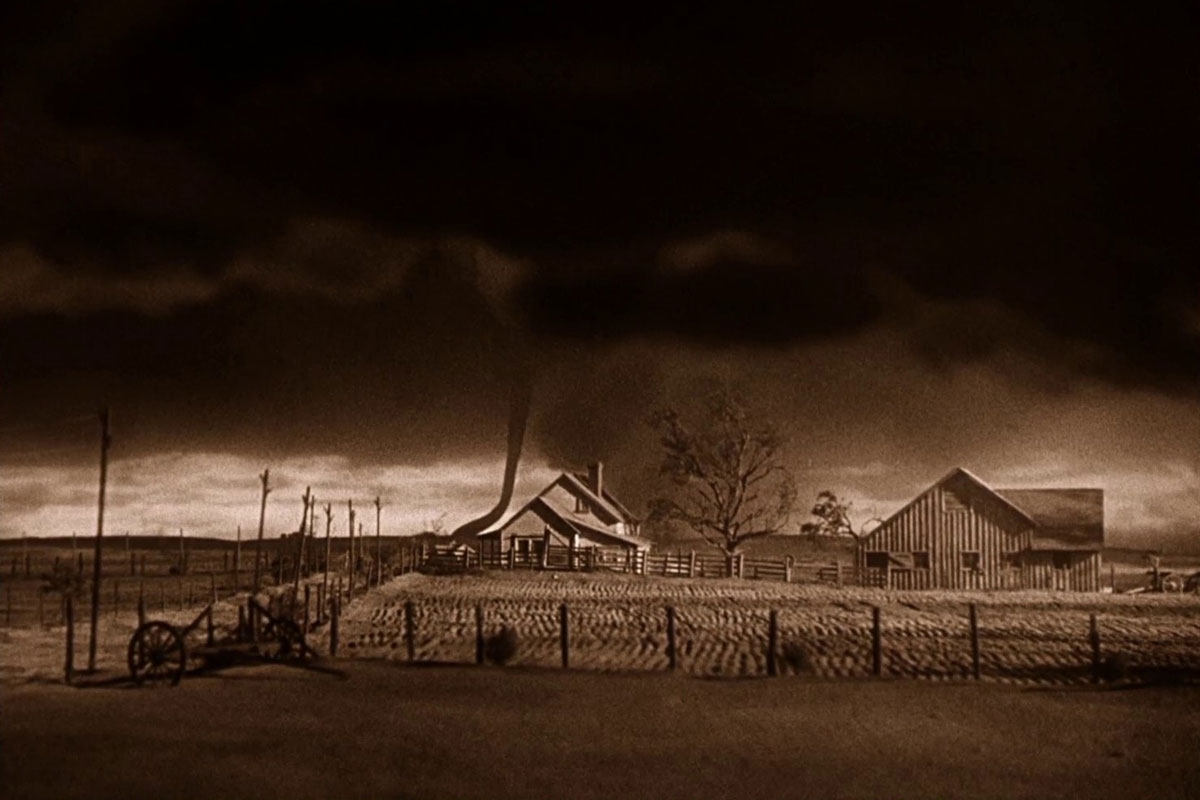
This was considered cutting-edge in 1939, but by 1996, filmmaking technology had advanced, with computer-generated graphics arriving on the scene. That year, Twister thrilled audiences with its depiction of a severe tornado outbreak in Oklahoma. That film referenced The Wizard of Oz, featuring a tornado research sensor array called Dorothy.
These fiendish funnels of wind and dust are back to blow audiences away with Twisters, the standalone sequel to Twister.
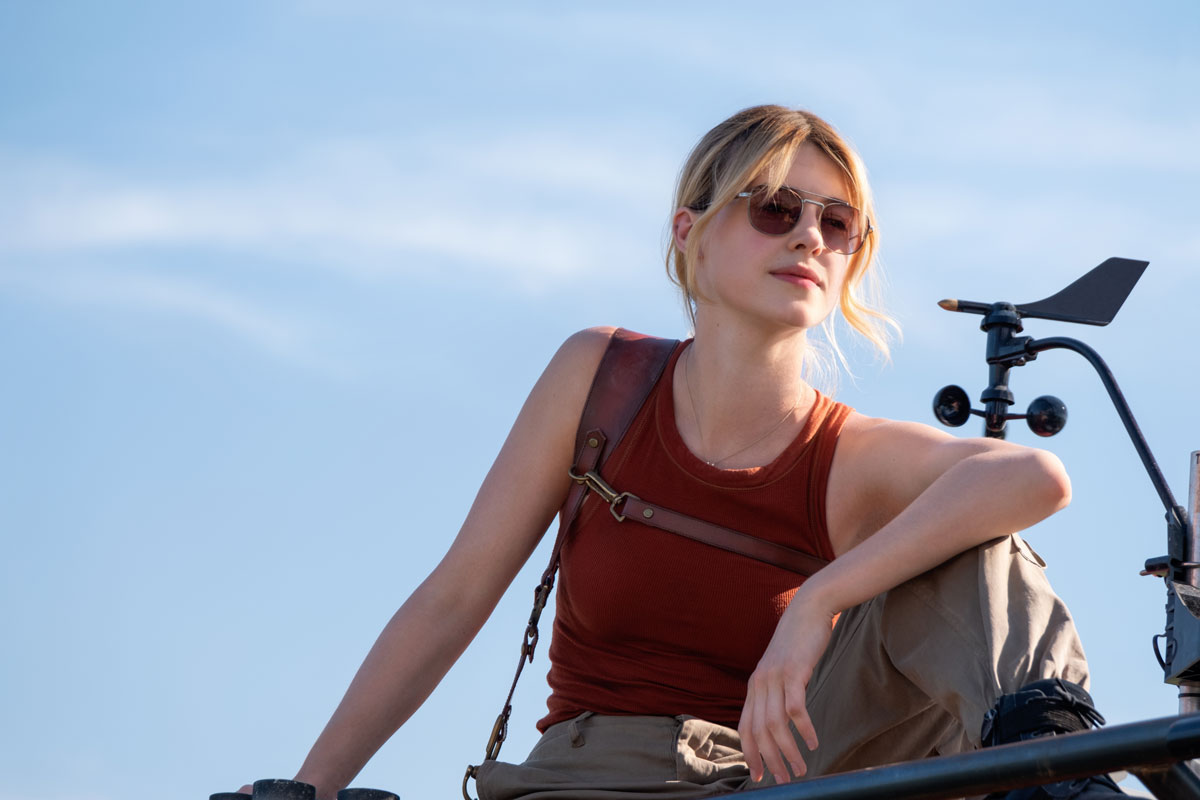
Kate (Daisy Edgar-Jones) is a meteorologist and former storm chaser based in New York. A traumatic encounter with a tornado made her swap the dangerous life for a deskbound job, but her friend Javi (Anthony Ramos) comes calling. Javi, who has access to cutting-edge scanning technology that can capture detailed 3D images of tornadoes, invites her onto his team.
In Oklahoma, they encounter Tyler (Glen Powell), a charismatic and reckless social media star and self-styled cowboy scientist. His team includes videographer Boone (Brandon Perea), drone operator Lily (Sasha Lane), scientist Dexter (Tunde Adebimpe), and mechanic Dani (Katy O’Brian), with British journalist Ben (Harry Hadden-Paton) tagging along. A rivalry develops between the two teams, but Kate and Tyler eventually begin to respect each other as a convergence of tornadoes severely endangers all in its path.
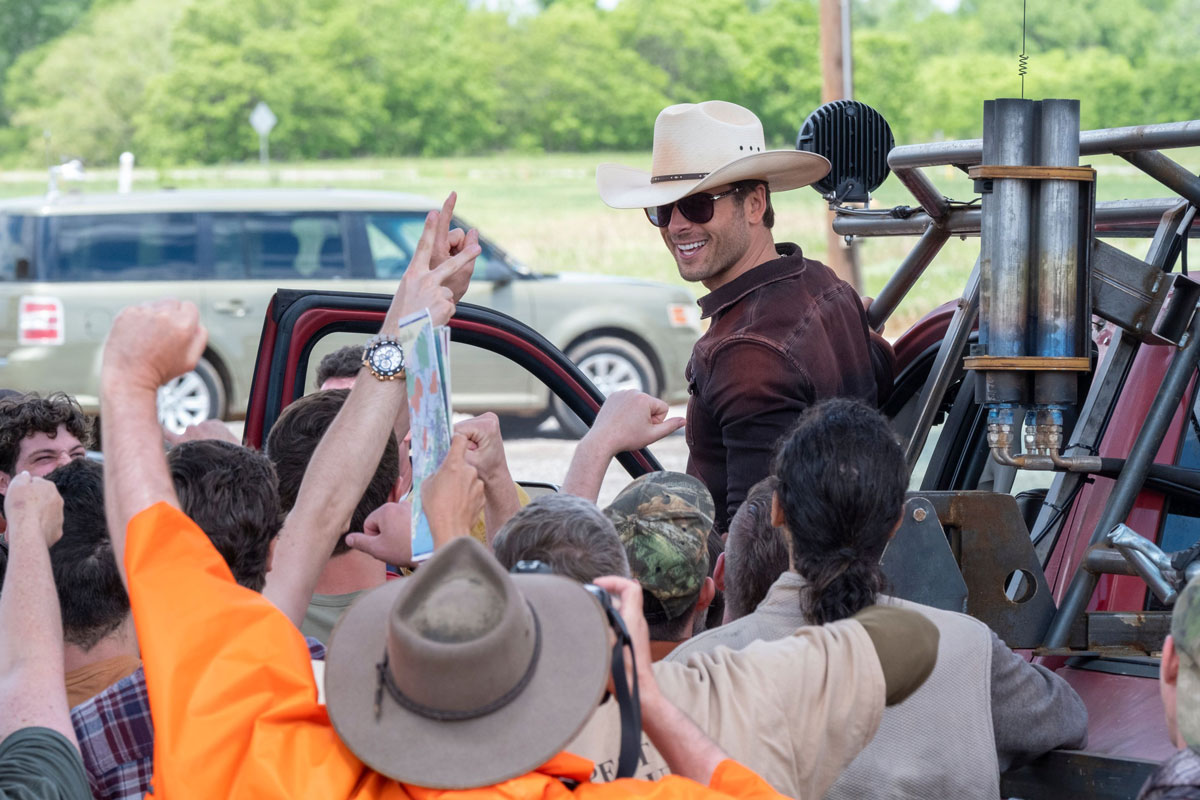
It’s been a long and winding road to getting a Twister sequel off the ground. A reboot was announced in 2020, but Helen Hunt, who starred in the original movie, separately pitched a sequel she co-developed with actors Daveed Diggs and Rafael Casal, which was ultimately rejected by the studio. Twister executive producer Steven Spielberg expressed enthusiasm for a screenplay by Mark L. Smith, and an unlikely pick was made to direct: Lee Isaac Chung, who helmed the intimate, Oscar-winning semi-autobiographical family drama Minari.
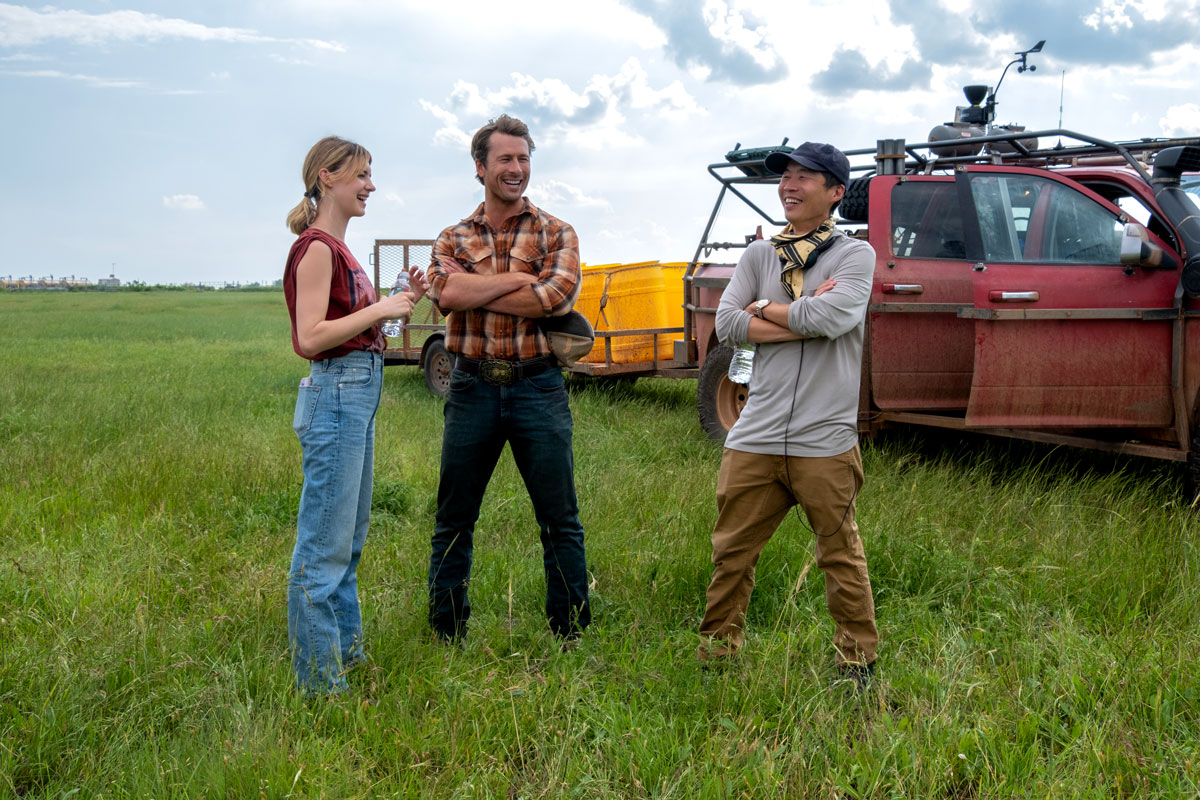
Chung was hesitant to take on the gargantuan project, but he let that fear motivate him. “I felt like if I go into it because I’m scared, it’s going to change me in some way. And I wanted that. I wanted to experience that journey personally,” he tells Slashfilm.
Twisters possesses a personal touch and an attention to character that grounds the disaster movie spectacle. Chung identifies with the movie’s protagonist, Kate, saying, “I grew up on a farm, I headed to the cities. I felt like I needed to run away from this identity.” The birth of Chung’s daughter helped him reconnect with his inner child. “I started to see things more through her eyes, as a kid… There’s an element to Kate’s story where she just has to capture that childlike joy and go back to what she was always loving,” Chung says.

Chung’s prior work earned him the attention of Daisy Edgar-Jones, who sought Chung out. “I have a list of my favourite directors, and Isaac was far up there,” she tells Variety. She was intrigued to find out that Chung was making Twisters. “I like quieter, introspective stories, so I was interested as to why someone like Isaac — who similarly has pursued that kind of storytelling — would make something like Twisters. I wrote him a letter, and we went for coffee. The more we spoke, I was just like, ‘This sounds amazing,’” Edgar-Jones said.
Edgar-Jones’ co-star and Hollywood’s man of the moment, Glen Powell, also has praise for Chung. Powell observes that because Chung grew up in neighbouring Arkansas, he brought authenticity to the Oklahoma setting and insisted on shooting the movie in the state.
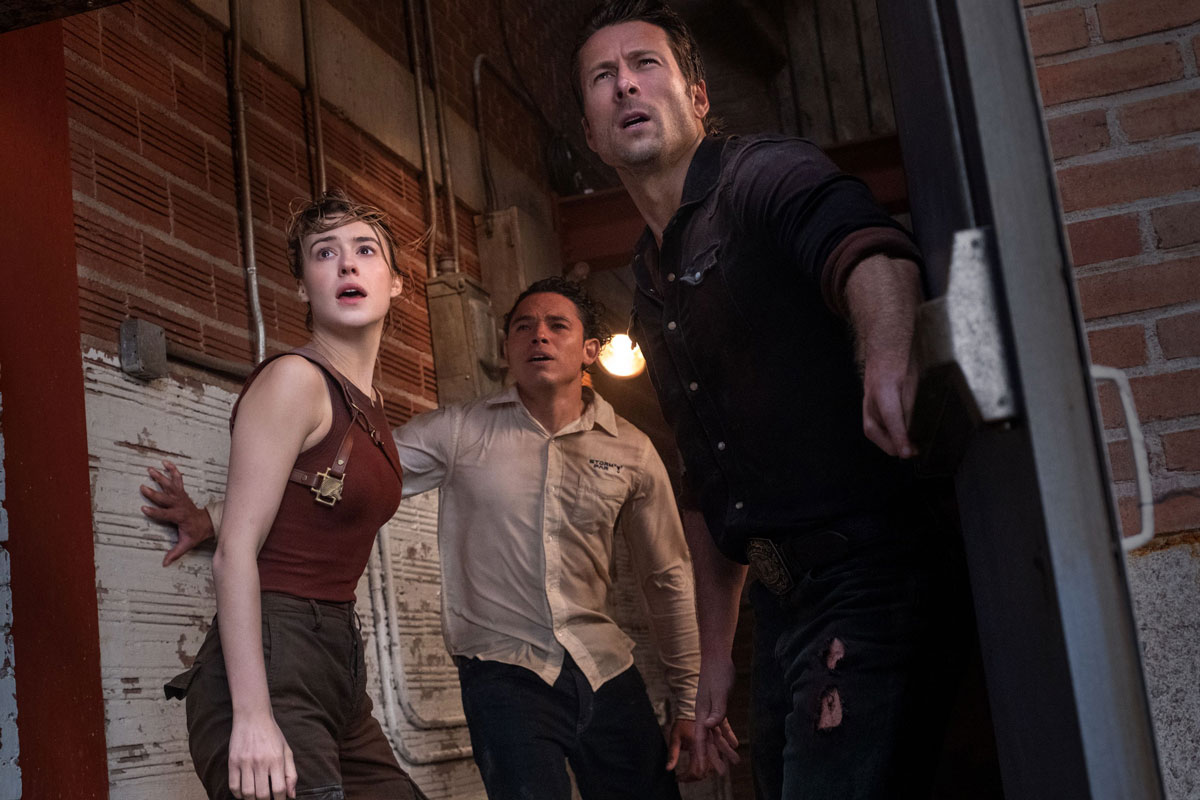
“As we were making it, he wasn’t making it from an outsider’s perspective on what he thought this world is. It’s such an inspired choice,” he tells IndieWire. He enthuses that instead of picking a director from the world of visual effects spectacle, the studio “went with a guy who really understands story”, emphasising that Chung “really understands character [and] how small things can add up to big emotions”.
Ultimately, Twisters takes a character-driven approach to a disaster movie, serving up exciting spectacle without drowning in it. It’s a solidly built blockbuster that invokes the spirit of the first Twister and ’90s movies like it while also feeling fresh in its own way.
Images: © 2024 Warner Bros. Entertainment Inc, Amazon MGM Studios
‘Twisters’: A Whirlwind of Fun — But With Genuine Feeling
Return of Tornado Thrills*: *Twisters, a standalone sequel to 1996’s Twister, follows meteorologist Kate (Daisy Edgar-Jones) and social media-savvy storm chaser Tyler (Glen Powell) as rival teams face deadly tornadoes in Oklahoma.
High-Stakes Rivalry: Kate, pulled back into storm chasing by her friend Javi’s high-tech team, clashes and later allies with Tyler’s brash crew when a catastrophic tornado outbreak threatens them all.
Unique Directorial Vision: Director Lee Isaac Chung, known for the intimate Minari, brings a personal and character-driven focus to the disaster spectacle, drawing parallels between his own rural upbringing and Kate’s journey.
Authenticity and Setting: Chung’s Arkansas roots helped him bring realism to the Oklahoma backdrop, insisting the film be shot on location for added authenticity.
Behind-the-Scenes Journey: After several stalled attempts at a sequel, including a rejected pitch by Helen Hunt, the project was revived with Steven Spielberg’s backing and a screenplay by Mark L. Smith, marking a fresh yet nostalgic return.